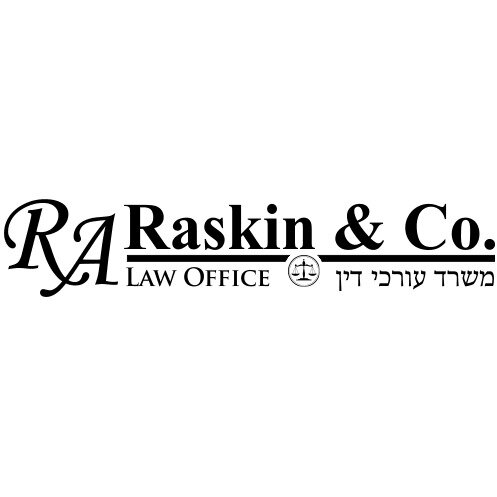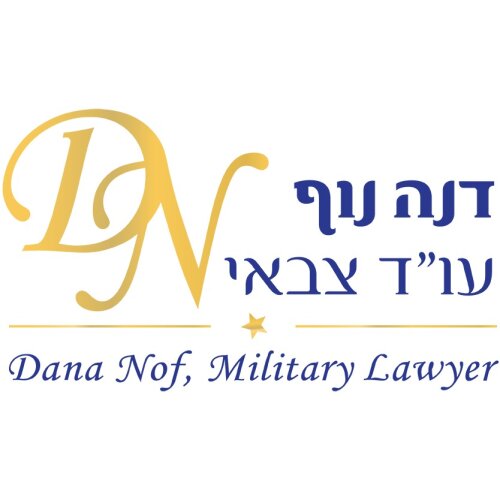Best Arrests & Searches Lawyers in Haifa
Share your needs with us, get contacted by law firms.
Free. Takes 2 min.
List of the best lawyers in Haifa, Israel
About Arrests & Searches Law in Haifa, Israel
Understanding the legal framework governing arrests and searches in Haifa, Israel is crucial for anyone residing or traveling there. This framework is designed to balance law enforcement's duty to maintain public order and individuals' rights to privacy and fairness. The laws outline clear guidelines for when and how arrests and searches can be conducted, thereby ensuring that justice is administered properly while protecting citizens from potential abuses.
Why You May Need a Lawyer
Legal expertise can be invaluable in various scenarios related to arrests and searches:
- Being subjected to an arrest or search that you believe to be unlawful.
- Facing charges stemming from evidence obtained during a search.
- Wanting to understand your rights and obligations if you're involved in legal proceedings.
- Needing to ensure that law enforcement follows proper procedures during interactions.
- Seeking to file a complaint or suit against improper conduct by authorities.
Local Laws Overview
Several key legal concepts define arrests and searches in Haifa:
- Reasonable Suspicion: For a search or arrest to be lawful, police must have a reasonable suspicion that an individual is involved in criminal activity.
- Search Warrants: Except in specific situations, police usually require a warrant to conduct a search. This warrant must be issued by a judge and based on probable cause.
- Rights During Arrest: If arrested, an individual has the right to be informed of the reason for arrest, the right to remain silent, and the right to an attorney.
- Evidence Collection: Procedures must be followed when collecting evidence during searches to ensure it is admissible in court.
- Juvenile Protections: Special considerations and protections are afforded to minors during arrests and searches.
Frequently Asked Questions
1. What constitutes a lawful search in Haifa?
A lawful search typically requires a warrant issued by a judge based on probable cause, except in cases of exigent circumstances or consent.
2. What are my rights if I am arrested?
If you are arrested, you have the right to be informed of the charges against you, the right to remain silent, and the right to legal representation.
3. Can police search my home without a warrant?
Police generally need a warrant to search your home unless there are pressing circumstances, such as an imminent threat to public safety or if you give consent.
4. What is 'probable cause'?
Probable cause refers to reasonable grounds for believing that a person is involved in criminal activity or that evidence of a crime exists in a specific location.
5. How can I challenge the legality of a search or arrest?
To challenge a search or arrest's legality, you can file a motion in court arguing that your rights were violated and potentially suppress any evidence obtained unlawfully.
6. What should I do if I am being searched?
Stay calm, do not resist, and clearly state that you do not consent to the search. If possible, document the event and contact a lawyer immediately.
7. Are there different rules for searches of vehicles?
Yes, searches of vehicles can have different rules. For instance, police can search a car if they have reasonable suspicion to believe it contains evidence of a crime.
8. Can I record a police officer during an arrest or search?
Generally, you are allowed to record police officers in public places as long as you do not interfere with their operations.
9. Do juvenile suspects have special rights?
Yes, juveniles have additional protections, such as the requirement for parental notification and potentially presence during questioning.
10. What happens if evidence is obtained unlawfully?
Evidence obtained unlawfully can be challenged in court and may be excluded from the trial, potentially weakening the prosecution's case.
Additional Resources
Several governmental bodies and organizations can offer assistance:
- Israel Police: For understanding procedures and filing complaints.
- Public Defender's Office: For legal representation if you cannot afford a private attorney.
- Legal Aid Department of the Ministry of Justice: For civil legal assistance.
- ACRI (Association for Civil Rights in Israel): For information on your civil rights.
Next Steps
If you need legal assistance related to arrests and searches:
- Contact a qualified lawyer who specializes in criminal law and has experience with local Haifa courts.
- Gather and document all evidence and details related to your case.
- Be prepared to discuss your case openly to get the best legal advice tailored to your situation.
Remember, knowing your rights and having expert legal representation can significantly impact the outcome of your case.
Lawzana helps you find the best lawyers and law firms in Haifa through a curated and pre-screened list of qualified legal professionals. Our platform offers rankings and detailed profiles of attorneys and law firms, allowing you to compare based on practice areas, including Arrests & Searches, experience, and client feedback.
Each profile includes a description of the firm's areas of practice, client reviews, team members and partners, year of establishment, spoken languages, office locations, contact information, social media presence, and any published articles or resources. Most firms on our platform speak English and are experienced in both local and international legal matters.
Get a quote from top-rated law firms in Haifa, Israel — quickly, securely, and without unnecessary hassle.
Disclaimer:
The information provided on this page is for general informational purposes only and does not constitute legal advice. While we strive to ensure the accuracy and relevance of the content, legal information may change over time, and interpretations of the law can vary. You should always consult with a qualified legal professional for advice specific to your situation.
We disclaim all liability for actions taken or not taken based on the content of this page. If you believe any information is incorrect or outdated, please contact us, and we will review and update it where appropriate.













